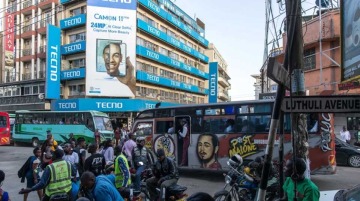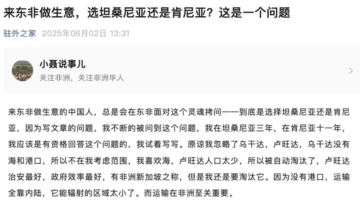
In a sector long dominated by counterfeit trade and British American Tobacco’s (BAT) near-monopoly of the Kenyan cigarette market, a Chinese distributor did something no one expected: it played by the book.
The popular Kenya-based Chinese online commentator Xiao Nie “小聂说事儿,” who chronicles the daily life of Chinese immigrants in Africa, recently traced the extraordinary rise of a Chinese tobacco distributor attempting to break into Kenya’s tightly controlled cigarette market.

The story follows a Chinese couple behind “Shapo,” the local agent for China Tobacco, as they attempt something almost unheard of in Kenya’s tobacco sector: entering the market fully legally and transparently.
In a landscape dominated for decades by BAT, where counterfeit cigarettes, tax leakage, and informal distribution are the norm, Shapo’s insistence on obtaining licenses, paying full duties, and complying with every regulatory step immediately made them an outlier. Their first shipment alone incurred more than half a million dollars in taxes. Local competitors openly expected the bureaucracy to crush them.
Instead, their biggest fight came from BAT. Once Shapo secured a legal production and sales license and launched the country’s first widely distributed slim cigarette – a segment harder to counterfeit and not previously developed in Kenya – BAT responded with an all-out pushback: media campaigns accusing the Chinese newcomers of massive tax evasion, surprise inspections from multiple government agencies, and even a fabricated “toxicity report” used to justify threats of arrest.
At one point, authorities sealed Shapo’s warehouse holding over $14 million worth of inventory, forcing the couple into months of legal and political trench warfare to prove their products met international standards.
Against expectations, Shapo survived. Audits cleared them, the warehouse reopened, and their slim cigarette line began winning BAT’s distributors by offering higher margins than the incumbent giant. For the first time, BAT was forced to import slim cigarettes into Kenya to compete.
The episode is more than a business story. By entering “the hardest way possible” – through full compliance – China Tobacco inadvertently pressured Kenya’s opaque, counterfeit-ridden market to clean up: tax revenues increased, regulators took genuine manufacturing standards seriously, and consumers began distinguishing legal from illicit products.
WHY IS THIS IMPORTANT? In a market where informality is the norm, betting on the rule of law proved both the riskiest and the most disruptive move. Their three-year battle shows how a Chinese private distributor, operating openly rather than in the shadows, managed to challenge one of the world’s largest tobacco companies on its home turf and, in the process, alter Kenya’s tobacco landscape.








